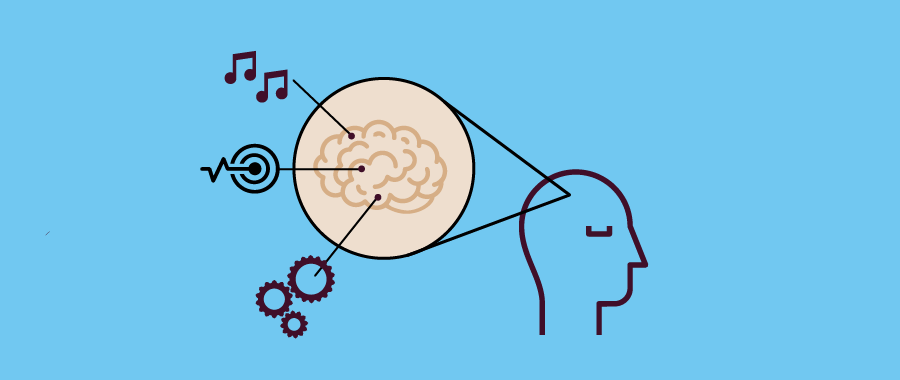
What is Autism?
April is Autism Awareness Month! Lawson Clinical Psychology are keen to build both awareness and more importantly, acceptance of Autism, and neurodivergence within our community.
Autism is a neurological condition characterised by differences in the way the brain and body processes information which then influences how a person communicates and interacts with people and the world around them. Like everyone, Autistic people have individual strengths and challenges and every Autistic person presents with, and is affected by, their Autism in various different ways.
For a formal diagnosis of Autism, challenges within in two main areas are required:
- Difficulties in social communication and interactions
- Restricted and repetitive behaviours, and sensory regulation issues
These challenges are present from early childhood, and may negatively impact on a person’s life in areas such as, their relationships with others, school, employment, or their capacity to consistently engage in daily activities. In addition to these challenges, neurological differences associated with Autism can also incorporate areas of strength, such as a high level of specialised knowledge, enhanced creativity and problem solving, and visual spatial processing skills.
We use the term ‘autism’ to refer to the clinical diagnosis of autism spectrum disorder (ASD). For some members of the autism community the label ‘disorder’ produces stigma and emphasises the difficulties associated with autism rather than identifying a person’s strengths. Likewise, we use identity-first language such as ‘autistic person’ throughout to respect the preferences of the majority of autistic people (Kenny et al. 2016). However, the best way to find out how an Autistic person likes to refer to their Autism is to ask them, as it varies for each individual.
What causes Autism?
There is no single cause of autism. Current research suggests that the condition develops from a combination of a variety of genetic and developmental factors.
What does an Autism assessment entail?
There are not yet any reliable biomarkers or genetic testing of the neurological differences of autism, which means that the condition is diagnosed behaviourally, using observations and descriptions of core characteristics outlined in diagnostic criteria for Autism Spectrum Disorder (ASD). The Diagnostic and Statistical Manual 5th Edition – Text Revision (DSM-5-TR) is most commonly used for Autism diagnosis in Australia.
There can be several health professionals involved in an autism diagnosis depending on the age and needs of the person being assessed. For younger children, a formal diagnosis typically involves a medical practitioner such as a paediatrician or child and adolescent psychiatrist, as well as a psychologist, and a speech pathologist. For older teenagers and adults an assessment may include a psychiatrist and a psychologist.
During a comprehensive psychological assessment, information is gathered from a variety of sources including a person’s self-report and direct observations. Additional information is gathered from other important people in a person’s life, such as parents, teachers, and family members via interview and questionnaires. A psychologist may also visit younger children at school to observe them in their school environment with their peers. All of this information is collated into a diagnostic report along with tailored recommendations for each individual, which can be shared with teachers and health providers involved in a person’s care.
How do I learn more about Autism?
The following websites provide an overview of current research in Autism, stories from Autistic people, as well as organisations and services based in Western Australia.
- National Autistic Society
- Stories from the Spectrum
- Telethon Kids Institute CliniKids Program
- Autism Association Western Australia
- Spectrum Space
Written by Katie Astley, Clinical Psychologist
More information
If you're concerned about yourself or someone you care for and would like to learn more about how to help someone who is feeling suicidal, or to book an appointment one of our experienced clinical psychologists, contact our friendly client team by calling 6143 4499 or email via our contact page.

Contact
Ph: (08) 6143 4499
Fax: (08) 9200 5696
Monday to Thurs 8:30am - 7:30pm
Friday 8:30am - 4:30pm
Saturday 8:30am - 2:30pm
Locations
6 Outram Street
West Perth, 6005 WA
36 St Quentin Avenue
Claremont, 6010 WA
In the spirit of reconciliation, Lawson Clinical Psychology acknowledges the Traditional Custodians of country throughout Australia and their connections to land, sea and community. We pay our respect to their Elders past and present and extend that respect to all Aboriginal and Torres Strait Islander peoples today.
Lawson Clinical Psychology celebrates the extraordinary diversity of people’s bodies, ability, genders, sexualities and relationships that they represent.
Copyright © 2024 Lawson Clinical Psychology. All Rights Reserved. Privacy Policy.
